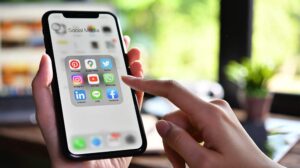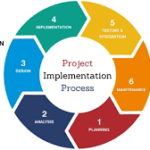In today’s interconnected world, social media plays an enormous role in our daily lives. It’s not just a venue for social interaction it’s also a crucial component in Social Media Marketing Strategies. Businesses utilize platforms like Facebook, Twitter, and Instagram to reach customers and boost sales. However, despite its many perks, social media can be a significant distraction, especially for students trying to focus on their academics. This article aims to delve deeper into the various impacts of social media and offer comprehensive strategies to help students maintain focus during their study sessions.
The Social Media Landscape: A Double-Edged Sword
Why Is Social Media So Distracting?
The reason social media can be so diverting stems from its design and content strategy. The Impact of Social Media on Youth has been particularly concerning. Various platforms employ tactics to engage users, including algorithms that showcase content tailored to individual preferences. Moreover, the Benefits of Social Media Advertising have encouraged companies to produce highly captivating ads that pop up in feeds, further drawing people in. You may also read Is Forex Trading Profitable
The Psychological Costs of Distraction
When you succumb to social media distractions, it affects not only your productivity but also your mental well-being. Studies indicate that constant switching between tasks impairs cognitive functions and increases stress levels. Furthermore, Social Media and Mental Health Studies have found links between excessive social media use and anxiety, depression, and other mental health issues.

Identifying Your Social Media Habits: The First Step to Solution
The Role of Social Media in Business Growth: A Distraction for Students
One aspect that makes social media increasingly compelling is its role in business growth. Companies create engaging content and Effective Social Media Campaign Examples that captivate our attention. While this is good for businesses, it is detrimental for students as the intriguing content can easily pull them away from academic tasks.
Know Your Triggers: Psychological Underpinnings
Understanding what triggers you to check your social media can significantly help in forming a strategy to avoid it. The Influence of Social Media on Consumer Behavior has been a subject of extensive research, and platforms use this information to create content that taps into human psychology. Recognizing these triggers can help you establish a strategy to resist them.
Implementing Practical Strategies: Real Solutions for Real Problems
Create a Study Environment Conducive to Focus
Your environment significantly impacts your ability to concentrate. You can opt to keep your phone in another room or use specialized applications that block distracting websites, including the Best Social Media Platforms for Businesses.
Utilize the Pomodoro Technique: Balancing Work and Play
This time management system involves working diligently for a set period (usually 25 minutes), followed by a short break (5 minutes). It allows you a guilt-free way to check social media during your breaks, without letting it interfere with your primary tasks.
Turn Off Notifications: Control Your Phone, Don’t Let It Control You
Notifications are one of the biggest culprits behind the distractions caused by our smartphones. By turning them off or customizing them to show only the most crucial alerts, you can significantly reduce interruptions during your study sessions.
Using Technology to Your Advantage: Smart Tools for Smart Study
Leverage Apps Designed for Study
There are several applications designed specifically to assist you in focusing on your tasks. These apps often incorporate time management principles and can even block your access to distracting websites for a certain period.
Setting App Limits: A Barrier Between You and Distraction
Most smartphones come with features that allow you to limit the time you spend on certain apps. This way, you can still check your social media accounts without wasting hours scrolling through your feed.

A Balanced Approach: Incorporate Social Media Wisely
Schedule Time for Social Media: Planned Breaks
Planning your breaks, including time for social media, can make your study sessions more effective. Knowing that you have designated time to catch up on Facebook, Twitter, or Instagram can help you concentrate better during your study periods.
Use Social Media for Academic Growth
Social media isn’t necessarily evil; it can be a useful tool for academic purposes as well. There are academic forums, scholarly articles, and various educational content available on platforms like LinkedIn and YouTube. The key is to use social media in a way that aids your studies, rather than distracts from them.
Reflect and Adjust: Ongoing Strategies
With the ever-changing landscape of social media, it’s essential to continually reassess your relationship with it. The metrics you initially set to monitor your usage may need adjustments, especially as new platforms emerge and existing ones update their features.
Maintain Awareness: An Ongoing Effort
While implementing these strategies, it’s crucial to maintain an awareness of your social media habits. Pay attention to how much time you’re spending, the kind of content you’re consuming, and how it’s affecting your emotional well-being. This ongoing vigilance is critical for maintaining a healthy balance between social media use and academic focus.
Conclusion
Social media is an integral part of our lives, offering various benefits from social connections to valuable insights into Social Media Marketing Strategies and the Role of Social Media in Business Growth. However, as students, we must find a balance. By understanding its impacts, such as the Impact of Social Media on Youth, and incorporating focused strategies, we can enjoy the best of both worlds without compromising our academic goals.
By taking a proactive approach and utilizing the strategies outlined above, you can harness the positive aspects of social media without letting it become a hindrance to your studies. It’s all about balance, self-control, and mindful usage.


